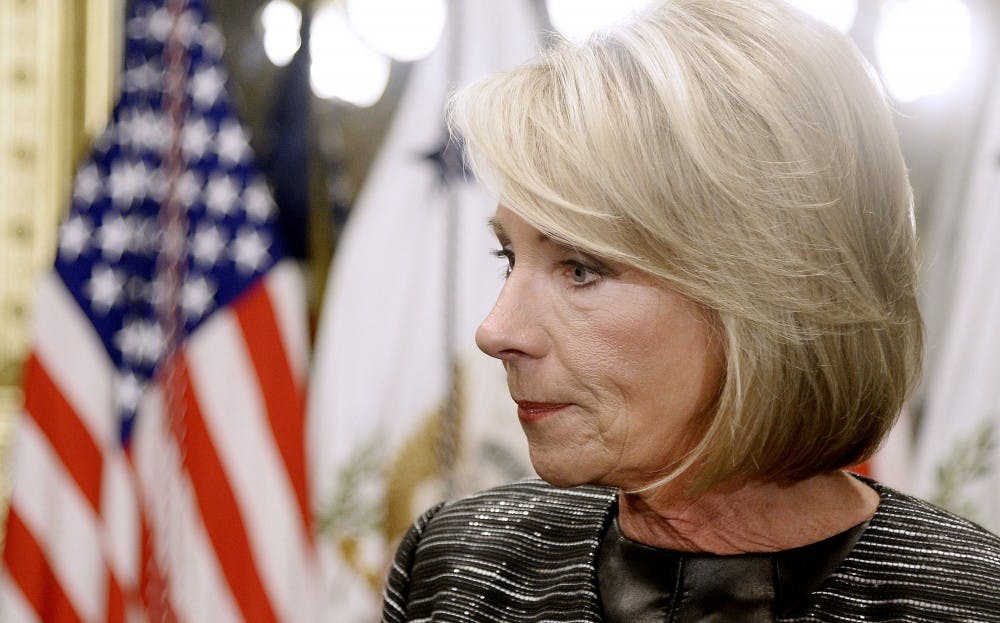Being a victim of sexual assault is already a difficult experience even before beginning the process of reporting the crime.
For those that do chose to report it, Secretary of Education Betsy DeVos’ proposed policy on how schools should handle the situation could make these times even more trying.
This policy would affect all schools and institutions covered by Title IX. According to the Washington Post, “fewer allegations would be considered sexual harassment and schools would be responsible only for investigating incidents that are part of campus programs and activities and that were properly reported. Schools could choose a higher legal standard for considering evidence.”
The message that Betsy DeVos and the Department of Education is sending to those who try to report their crimes to their schools is that the validity of their reports and their issues are not relevant to the school — which should not be an option for schools.
DeVos wants to give the accused rapists a chance to tell their sides of the story, which in reality is just a tactic to further probe a victim's story.
Women have a 1 in 6 chance of being a victim of a sexual assault or an attempted assault; this statistic is a 1 in 10 chance for men. According to Human Rights Campaign's collected statistics, 46 percent of bisexual women and 13 percent of lesbians have been raped, and 47 percent of transgender people will experience sexual assault in their lifetime.
Alesha Durfee, an associate professor of women and gender studies, said that this policy is a response against the current use of Title IX.
“This is also suggested changes, so institutions are still able to operate the way they want to," Durfee said. "I believe ASU strongly supports survivors, and they will continue to have a system that is based on the best interest for survivors. It doesn't reflect our current understanding, from a research and advocacy perspective, of the context in which sexual harassment occurs.”
The policy would allow rape myths to get in the way of a victim's story. According to research done for the American Counseling Association, “the existence of rape myths has been shown to negatively impact victims of sexual assault. Through the perpetuation of victim-blaming, rape myths can retraumatize survivors and discourage them from reporting their assault.”
While it is important to get both sides of the story, this policy would make it more difficult for men and women to share their stories since it seems to be in favor of the attacker.
An article for the Boston Globe stated, “DeVos, who also met with so-called ‘men’s rights’' groups, said of the accused, ‘their stories are not often shared.’”
These stories are shared, but often only offer a perspective from a person who is trying to believe their actions were based on "too much alcohol" or that the person was "asking for it."
Nowadays, there is no room to question the stories of rape victims even more — not on college campuses nor in any case of assault.
Reach the columnist at psaso@asu.edu and follow @paytonsaso on Twitter.
Editor’s note: The opinions presented in this column are the authors’ and do not imply any endorsement from The State Press or its editors.
Want to join the conversation? Send an email to opiniondesk.statepress@gmail.com. Keep letters under 500 words and be sure to include your university affiliation. Anonymity will not be granted.
Like The State Press on Facebook and follow @statepress on Twitter.




